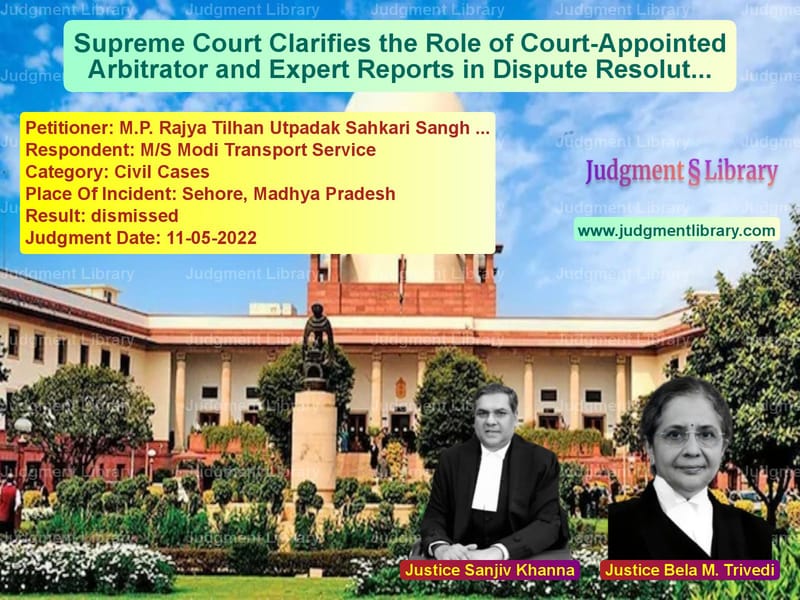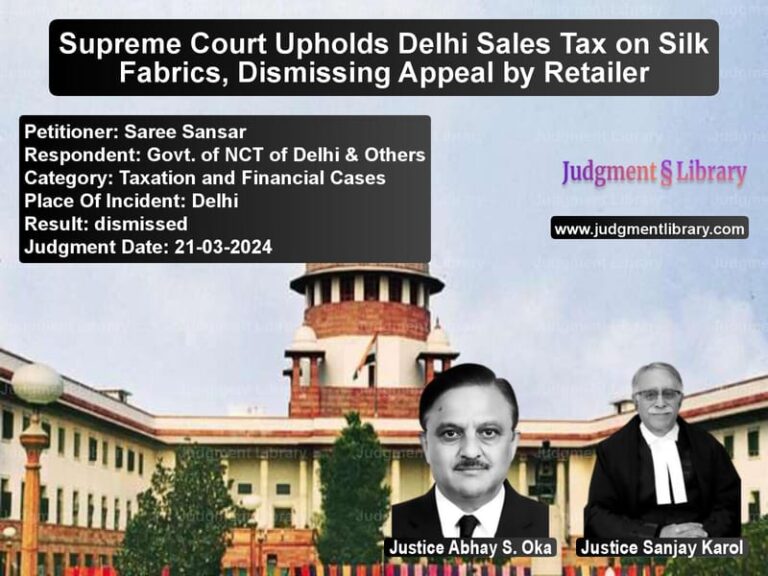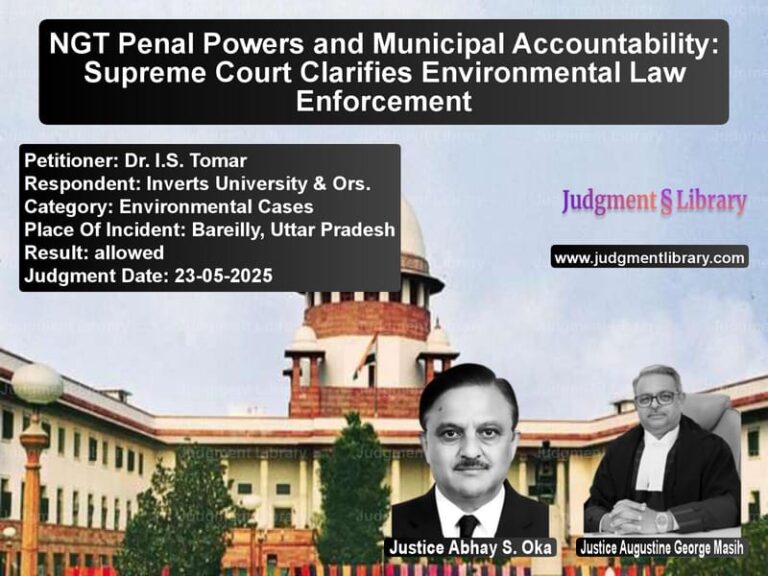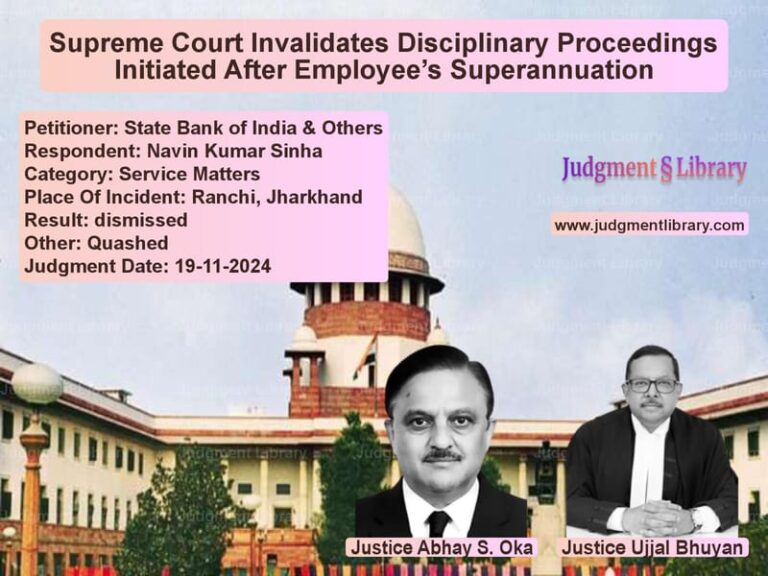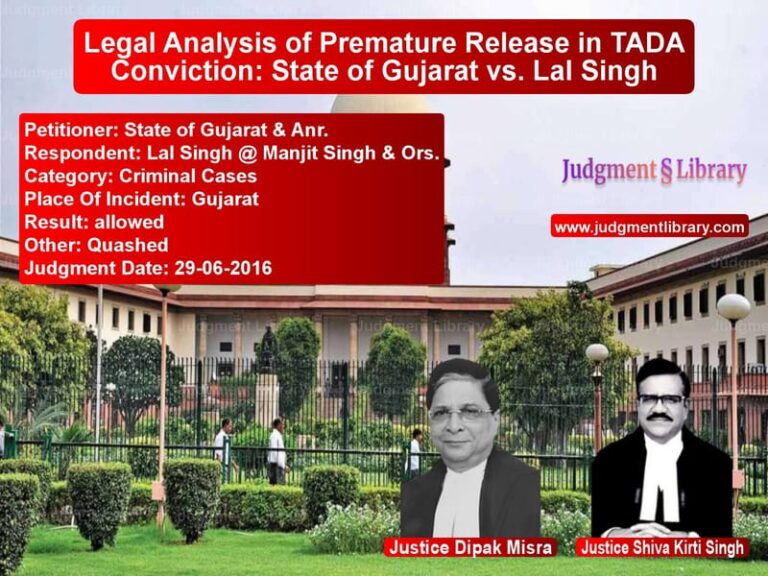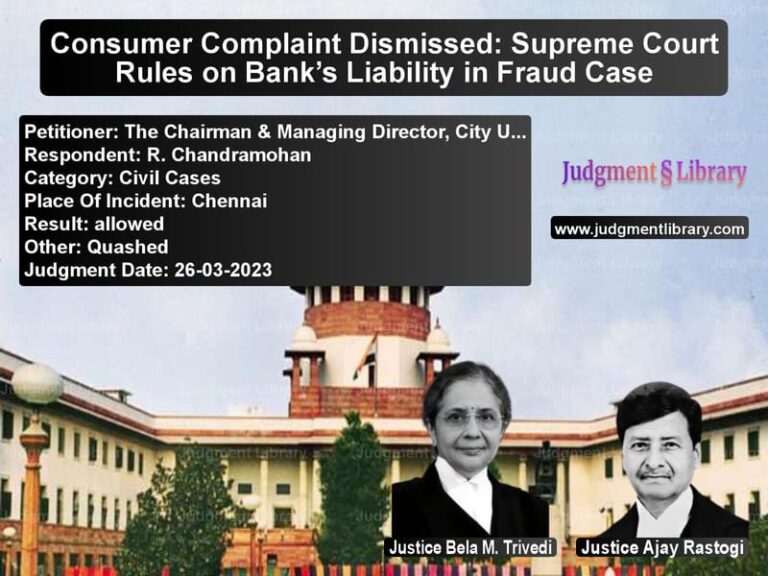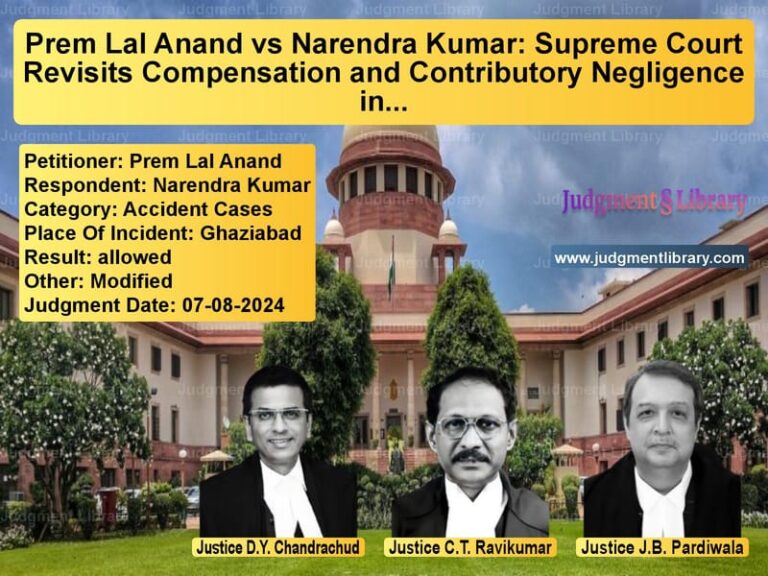Supreme Court Clarifies the Role of Court-Appointed Arbitrator and Expert Reports in Dispute Resolution
The Supreme Court of India, in its judgment in MP Rajya Tilhan Utpadak Sahkari Sangh Maryadit vs. M/S Modi Transport Service, addressed significant issues surrounding the appointment of an arbitrator under Section 21 of the Arbitration Act, 1940, and the role of expert reports submitted in the course of legal disputes. The Court also clarified the limitations of the arbitrator’s jurisdiction and the distinction between a court-appointed commissioner and an arbitrator.
Background of the Case
The dispute arose from a contract between M/s Modi Transport Service and MP Rajya Tilhan Utpadak Sahkari Sangh Maryadit regarding the transportation of coal. The plaintiff, Modi Transport Service, alleged that they were owed amounts for transportation services and additional charges. The defendant, a cooperative society, denied the claims, citing poor quality coal and excess moisture content as reasons for deductions.
The case was initially filed in the District Court, Sehore, seeking settlement of accounts. However, during the proceedings, the plaintiff moved an application to appoint a Chartered Accountant as an arbitrator to audit the accounts. The application was filed under the premise that a dispute over the accounts existed, and the parties agreed to refer the matter to arbitration.
Key Legal Issues
- Whether the appointment of a Chartered Accountant as an arbitrator under Section 21 of the Arbitration Act was valid.
- The extent of the arbitrator’s jurisdiction in resolving disputes beyond the verification of accounts.
- Whether the plaintiff’s application for arbitration was valid under Section 21 given the absence of an explicit agreement between both parties.
Arguments by the Petitioner (MP Rajya Tilhan Utpadak Sahkari Sangh Maryadit)
The petitioner argued that:
- The appointment of a Chartered Accountant as an arbitrator was inappropriate as the parties had not mutually agreed to arbitration in the proper legal manner.
- The application for arbitration was not filed in accordance with Section 21 of the Arbitration Act, which requires a mutual written agreement from both parties before referral to arbitration.
- The report submitted by the Chartered Accountant was not an award and should not be treated as such, as it was merely a report to assist the court in determining the merits of the case.
Counterarguments by the Respondent (M/S Modi Transport Service)
The respondent argued that:
- The parties had agreed to refer the matter to arbitration, as evidenced by the application and consent given by the defendant’s counsel.
- The Chartered Accountant’s report was legally binding and should be treated as an arbitral award.
- The objections raised by the defendant were without merit and were filed beyond the prescribed period.
Supreme Court’s Observations
1. The Role of the Arbitrator and Consent for Arbitration
“The jurisdiction of the court to refer a matter to arbitration under Section 21 of the Arbitration Act, 1940, is contingent upon the consent of all parties involved. A mutual agreement is required, and in the absence of such consent, the reference to arbitration is invalid.”
The Court emphasized that Section 21 of the Arbitration Act requires the agreement of all parties before the court can refer any dispute to arbitration. The lack of explicit written consent from both parties led to the conclusion that the arbitration proceedings could not proceed as intended.
2. Distinction Between an Arbitrator and an Expert/Commissioner
“An arbitrator has the authority to adjudicate disputes between parties, while an expert or commissioner appointed by the court can only assist the court by providing expert opinions or reports without making binding decisions on the dispute.”
The Court clarified the distinction between an arbitrator and a commissioner. While an arbitrator’s role is to adjudicate disputes based on the agreement between the parties, a commissioner’s function is to assist the court in gathering information or providing expert advice. In this case, the Chartered Accountant was appointed as a commissioner, not as an arbitrator.
3. The Arbitrator’s Report and Its Legal Effect
“The report submitted by the Chartered Accountant is not an arbitral award but a report that assists the court in its adjudication process. It is not binding on the parties unless confirmed by the court.”
The Court held that the report submitted by the Chartered Accountant was to assist the court in arriving at a fair and just decision. It was not legally binding, and the court was free to accept or reject the findings in the report based on the evidence and arguments presented by the parties.
Final Judgment
The Supreme Court ruled:
- The High Court’s decision affirming the trial court’s reference of the dispute to arbitration was set aside.
- The report of the Chartered Accountant was treated as a commissioner’s report, not as an arbitral award, and the case was remanded to the trial court for further proceedings.
- The trial court was instructed to consider the objections raised by the defendant and proceed with the case based on the merits of the dispute, without being influenced by the report of the Chartered Accountant.
Impact of the Judgment
This judgment has several key implications:
- Clarification on Arbitration Agreements: The ruling reinforces the need for explicit consent between parties for arbitration to be valid, emphasizing that the courts cannot compel arbitration without mutual agreement.
- Distinction Between Arbitrator and Commissioner: The judgment clarifies the roles of arbitrators and commissioners, ensuring that parties understand the scope of each role and the legal consequences of reports or awards issued by them.
- Role of Expert Reports in Court: The Court’s decision underscores that expert reports or commissioner’s reports are not binding and must be scrutinized by the court before they are adopted in the legal proceedings.
- Judicial Oversight in Disputes: The judgment highlights the court’s supervisory role in ensuring fairness in the dispute resolution process, even when third-party experts are involved.
In conclusion, this judgment serves as a significant reminder of the importance of mutual consent in arbitration, the roles of different professionals in the dispute resolution process, and the need for judicial oversight to ensure fairness in legal proceedings.
Petitioner Name: M.P. Rajya Tilhan Utpadak Sahkari Sangh Maryadit.Respondent Name: M/S Modi Transport Service.Judgment By: Justice Sanjiv Khanna, Justice Bela M. Trivedi.Place Of Incident: Sehore, Madhya Pradesh.Judgment Date: 11-05-2022.
Don’t miss out on the full details! Download the complete judgment in PDF format below and gain valuable insights instantly!
Download Judgment: m.p.-rajya-tilhan-ut-vs-ms-modi-transport-s-supreme-court-of-india-judgment-dated-11-05-2022.pdf
Directly Download Judgment: Directly download this Judgment
See all petitions in Contract Disputes
See all petitions in Damages and Compensation
See all petitions in Arbitration Awards
See all petitions in Judgment by Sanjiv Khanna
See all petitions in Judgment by Bela M. Trivedi
See all petitions in dismissed
See all petitions in supreme court of India judgments May 2022
See all petitions in 2022 judgments
See all posts in Civil Cases Category
See all allowed petitions in Civil Cases Category
See all Dismissed petitions in Civil Cases Category
See all partially allowed petitions in Civil Cases Category

